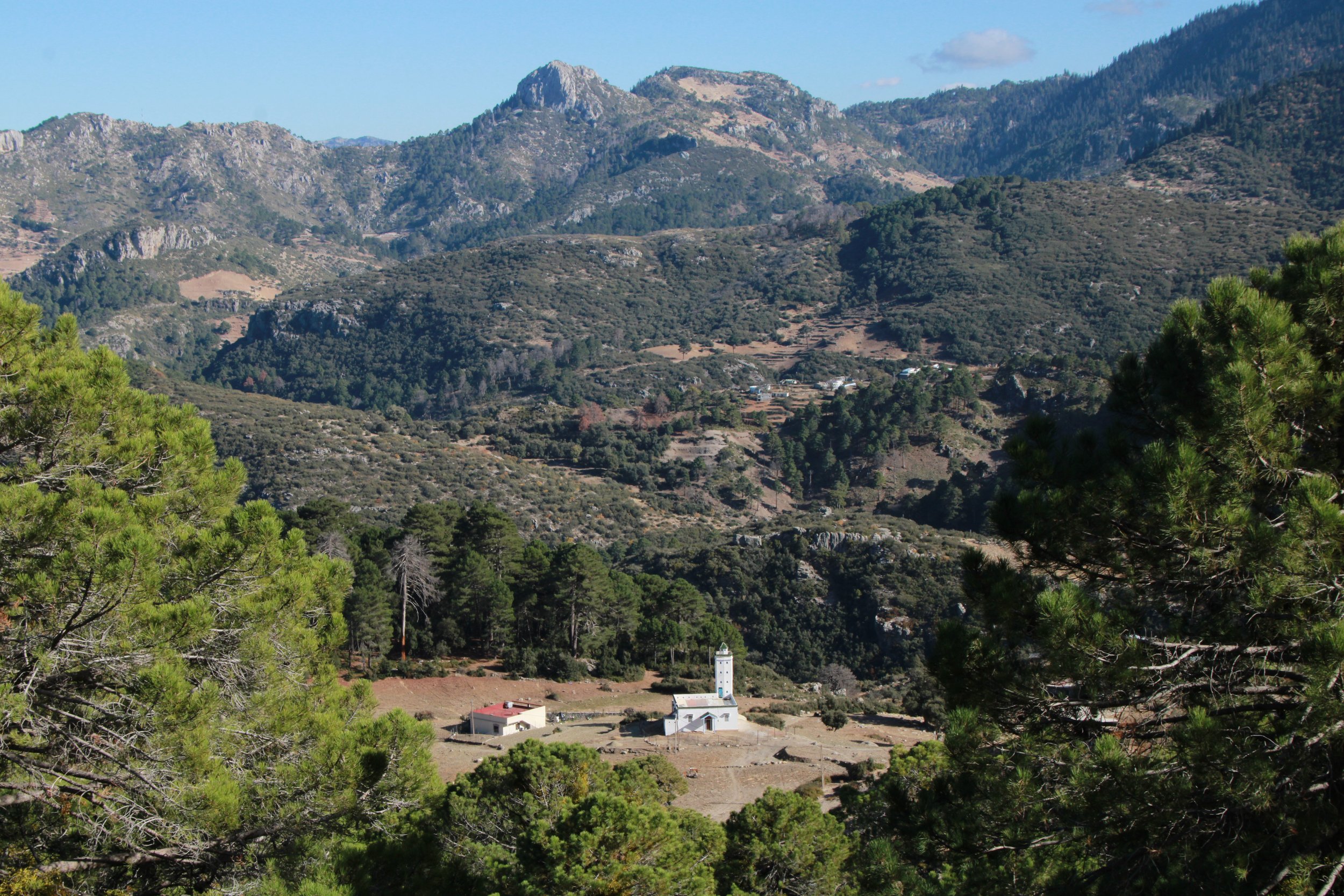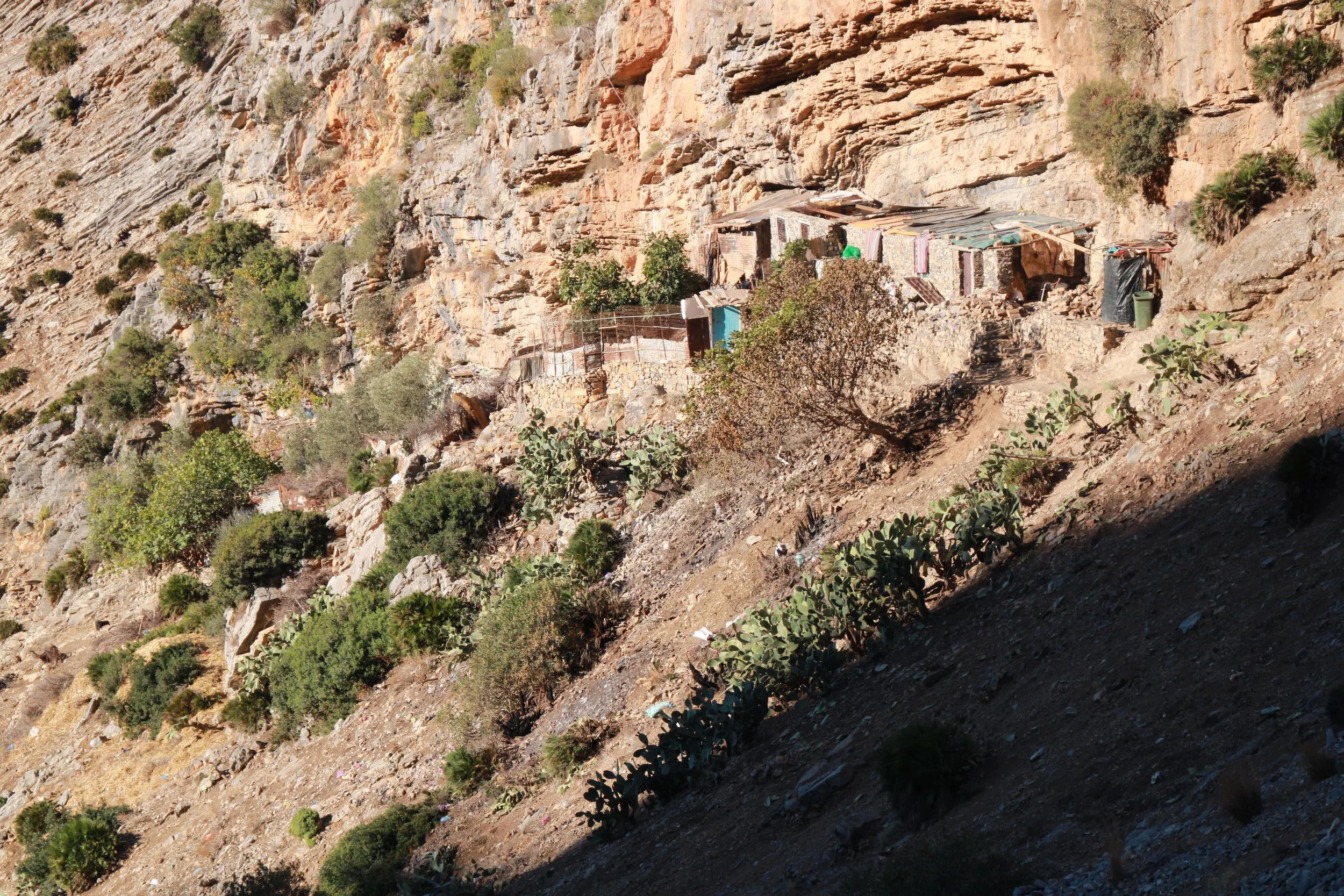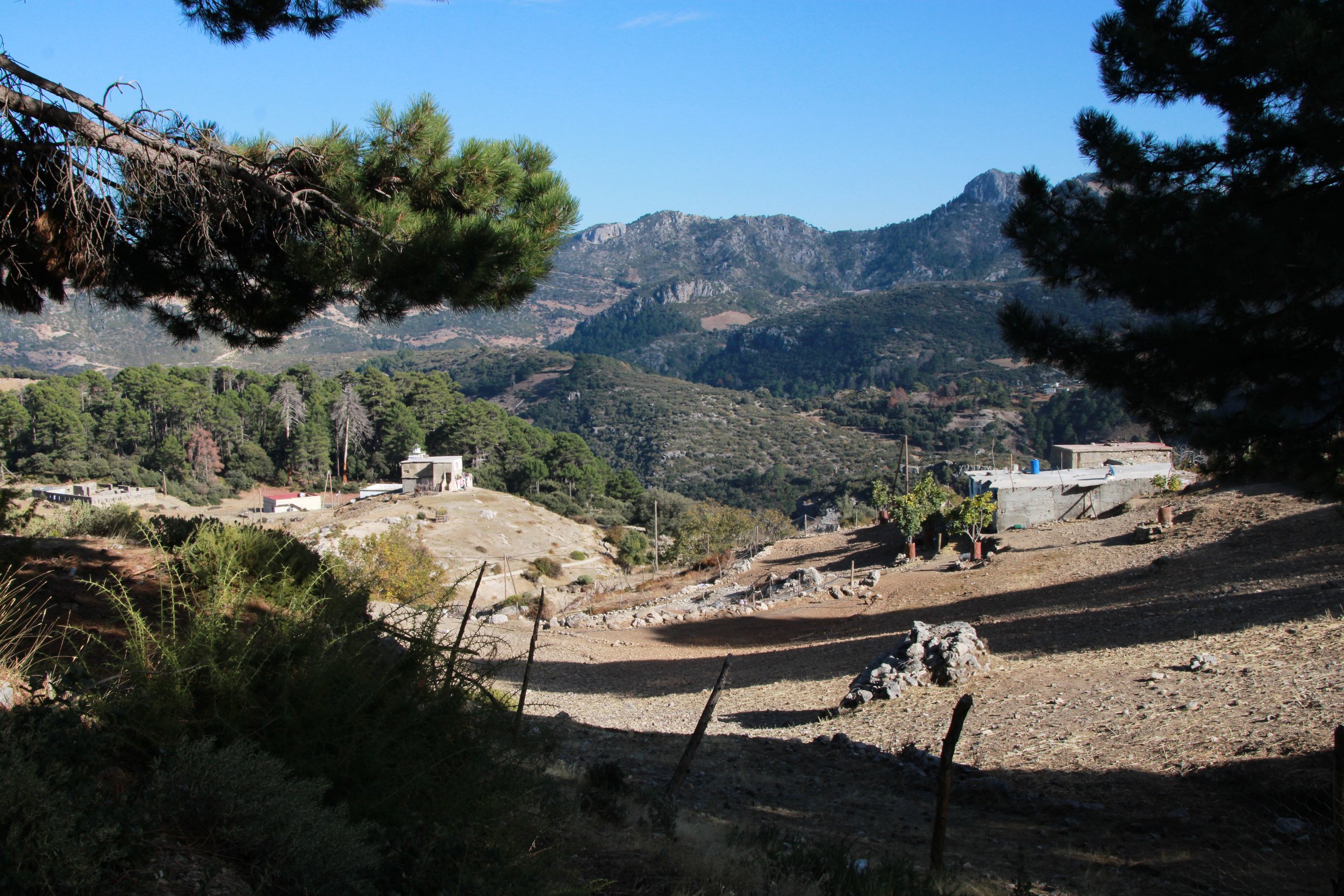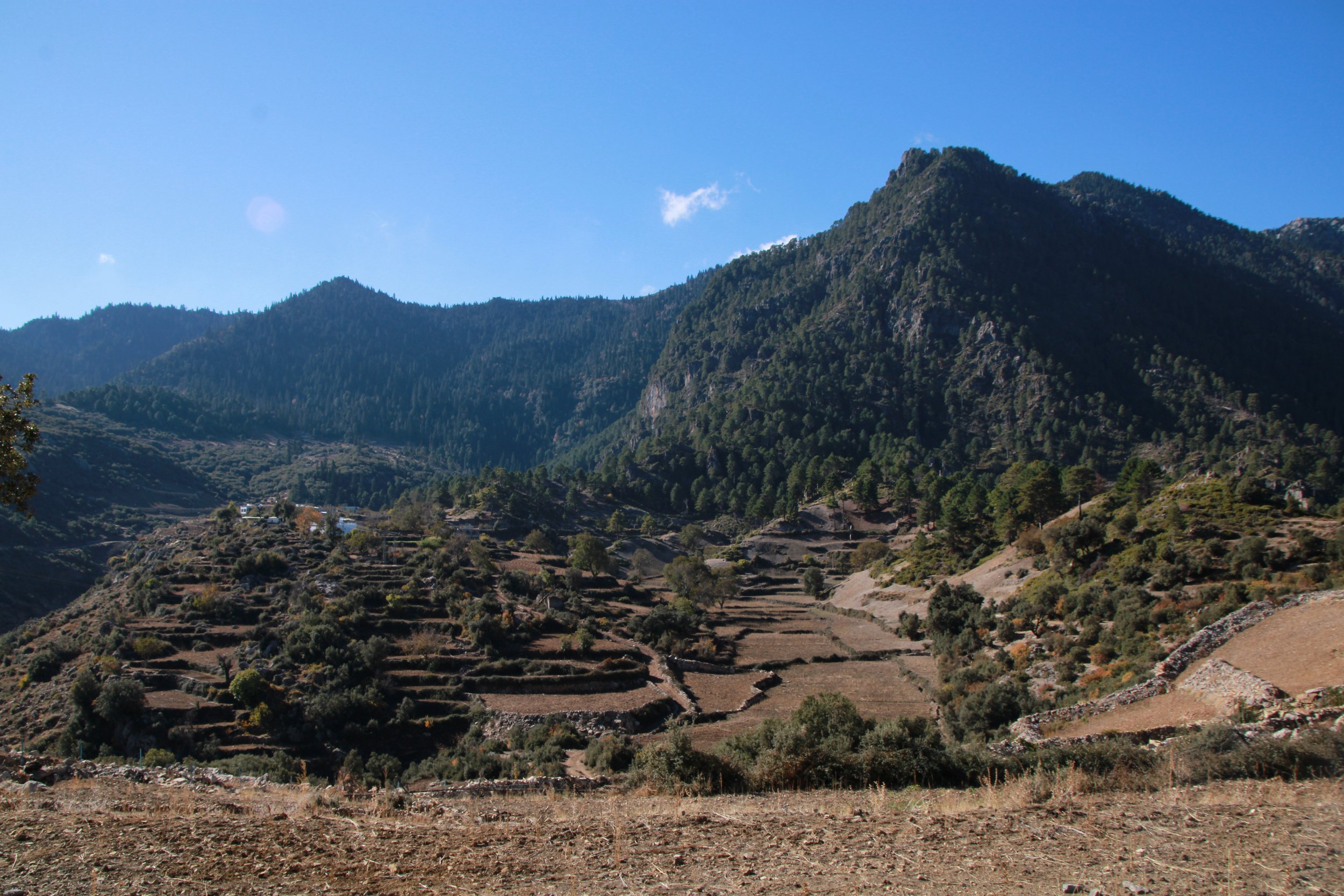Morocco is not all narrow souks and sleepless nights. It is also a country of unique natural beauty. With three distinct zones and several transitionary environments, the vast bulk of Moroccan land would be as beautiful as Zion or Yosemite if left undisturbed by man. When I had the occasion, I passed through the Rif Mountains in the north, famous from Bowles’ writing as a place of deep beauty and separatist-remoteness. The Berber people who live there, the Riffians, had their own language in Bowles’ day, and he toured them often in his “motorcar” recording music for the Library of Congress compliments of the taxpayer. To this day the largest collection of folk music from Morocco, particularly from the north, is derived from his recordings in remote villages where electricity was spotty and rare. The valleys of the Rif are deep, and their peaks can reach the heights of the Alps. During a five-hour hike one can see the vegetation change from prickly pear cactus and agave to cedar and Mediterranean pine, where even under the sun that once cooked the forehead, one must put on their layers and gloves to protect against the cold. In the hills, shepherds, or those who simply wish to live in a place where they hear and see songbirds every morning, dot the hillside, passing time in a timeless fashion.
PICTURED: A rural pastoralist farm in the foothills of the Rif Mountains. PC: Andrew Corbley ©
It is beyond these peaks and down into these valleys that according to this reporter, Bowles, and the locals, the vast majority of the hashish and kif that arrive in Europe is grown. A tragically-illegal tradition, hashish and kif are made and smoked in vast quantities by the Riffians, who according to local sources, aren’t bothered almost ever by authorities. If they were made legal, perhaps the locals could generate some meaningful income for their small outcrops of terrace farming, pastoralism, and ecotourism, but the cultural stigma attached to kif and hashish from the days of colonialism will probably prevent that day forever. Down below the cedars the weather is beautiful, at around 1,200 meters above the level of the sea. There monkeys—Barbary macaques, can also be seen in troupes. In the valley bottoms echo drums from the villages, and the raw and wild calls to prayer of the Maghrebi mosque. In the villages themselves, one realizes it is not the pounding of drums, but the pounding of cannabis and hemp to make hashish and kif respectively.







